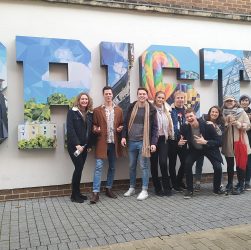Pre-departure: The exchange semester included in BCom International Business is one of the most attractive features of the degree. So …


Pre-departure: The exchange semester included in BCom International Business is one of the most attractive features of the degree. So …

Before departure – South Africa Planning for a semester exchange abroad is vital and almost just as daunting as actually …

Thinking of exchanging to Milan? Here’s what’s up: Pre-departure: There is a LOT of admin and deadlines that have to …